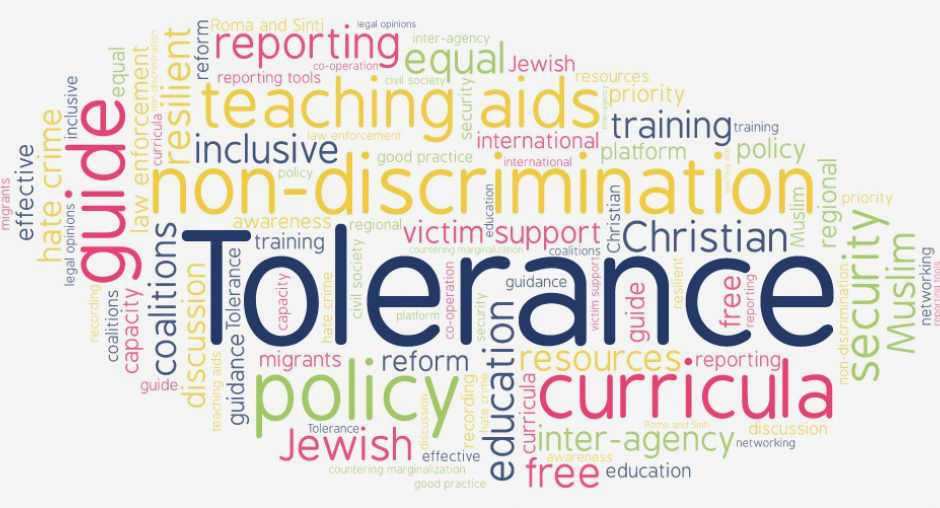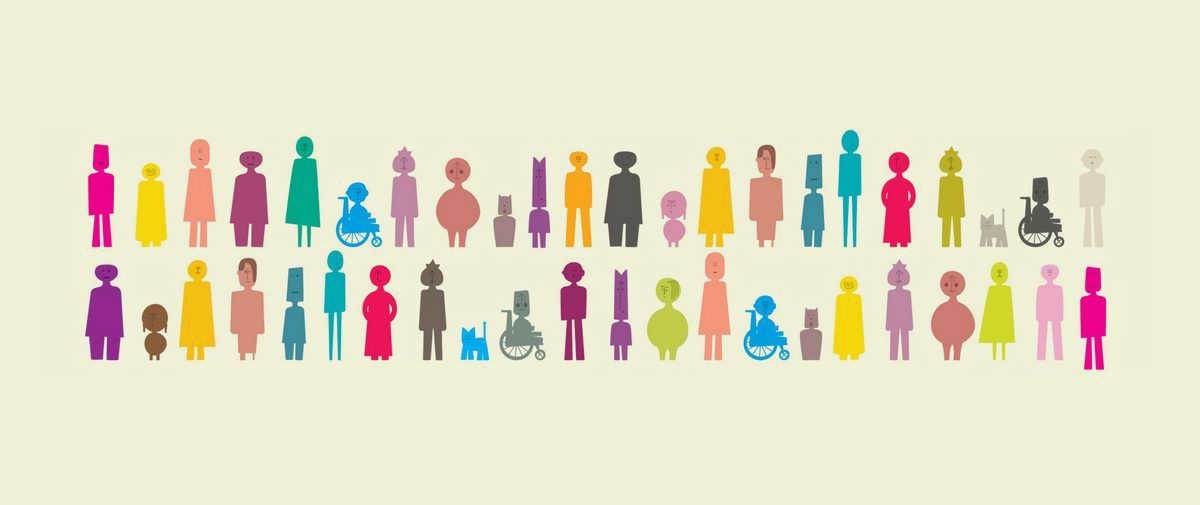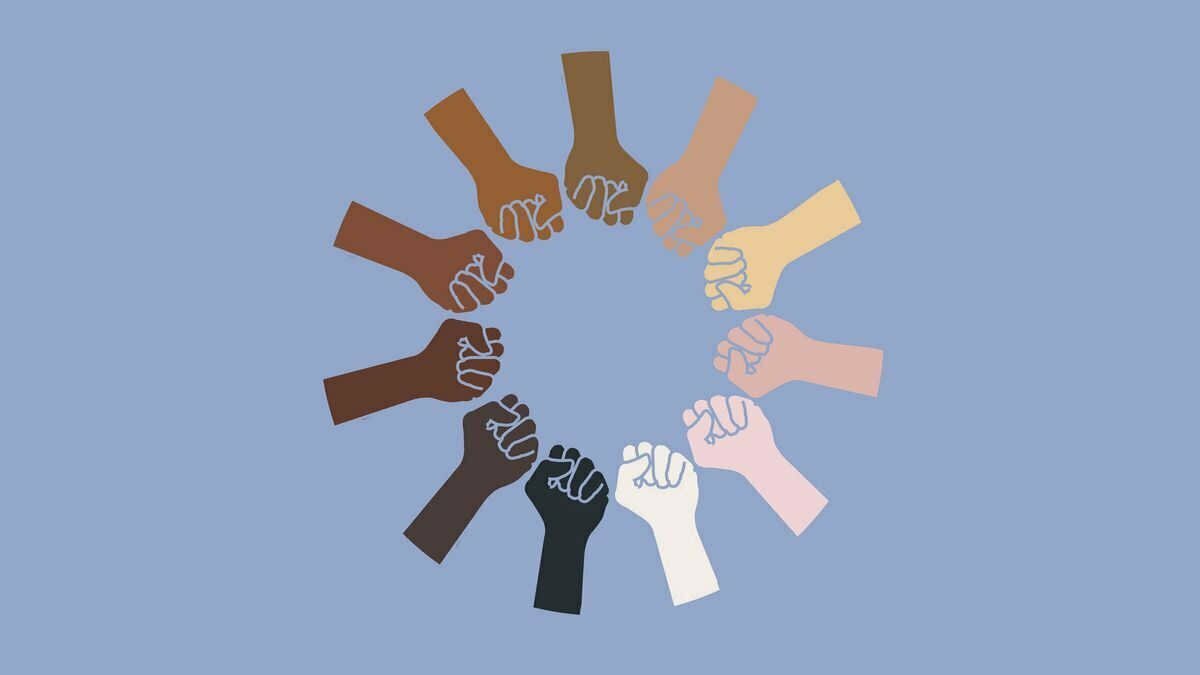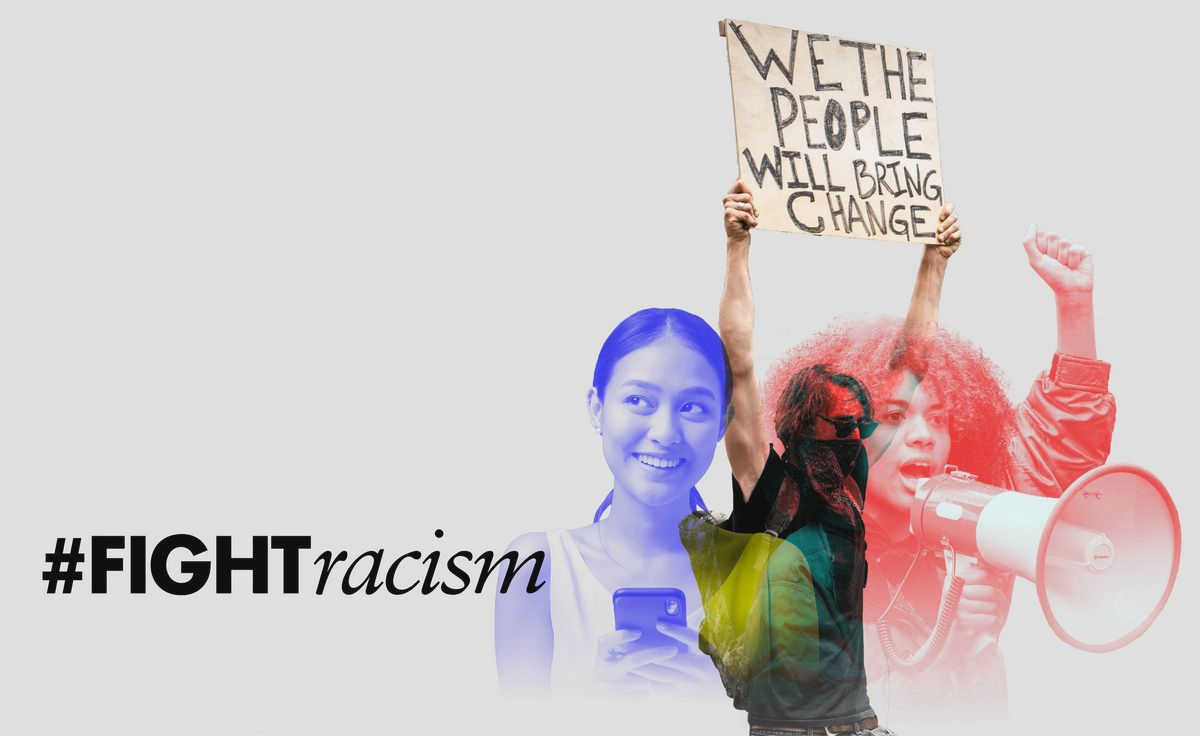Racial injustice has long been a pervasive issue in societies around the world. The legacy of systemic racism and discrimination continues to impact marginalized communities, hindering their access to equal opportunities and perpetuating social and economic disparities. In recent years, however, there has been a growing awareness and acknowledgment of these issues, leading to a surge in collective action by civil society organizations.
Driven by a desire for change and a commitment to social justice, civil society has played a crucial role in addressing racial injustice. These organizations, ranging from grassroots movements to non-profit organizations, have been instrumental in raising awareness about the deep-rooted nature of racial inequality and challenging the status quo. By amplifying the voices and experiences of marginalized communities, they have effectively pushed for reforms and policy changes that address the underlying causes of racial injustice.
One powerful tool in the fight against racial injustice has been the use of storytelling and personal narratives. Civil society organizations have recognized the power of individual stories in humanizing the issue and sparking empathy and understanding. By sharing stories of lived experiences, they have been able to break down barriers and challenge ingrained biases. These narratives serve as a powerful reminder that racial injustice is not a distant or abstract concept, but a lived reality for millions of people.
Moreover, civil society organizations have been at the forefront of advocating for institutional and systemic change. They have highlighted the need for greater diversity and representation in key decision-making positions, calling for policies that promote equal access to education, housing, employment, and healthcare. Through targeted advocacy campaigns, they have successfully pressured governments and institutions to take action, leading to the implementation of anti-discrimination policies and the establishment of racial equity initiatives.
While progress has been made, the fight against racial injustice is far from over. Civil society organizations continue to play a vital role in driving meaningful change and ensuring that the momentum for racial justice is sustained. By challenging attitudes, advocating for policy reforms, and fostering dialogue and understanding, civil society is paving the way for a more inclusive and equitable future.
The Origins of Racial Injustice
The origins of racial injustice can be traced back to the colonial period, when European powers began to establish colonies in different parts of the world. This marked the beginning of a system that would exploit and oppress indigenous populations, as well as those who were brought to the colonies as slaves.
Through colonization, Europeans imposed their own systems of governance and social hierarchies on the colonized peoples. This often involved the dehumanization and marginalization of indigenous populations, who were seen as inferior and in need of control. The enslavement of Africans further exacerbated racial injustice, as they were treated as property and subjected to brutal living conditions and forced labor.
Racial injustice was reinforced and institutionalized through various means, such as legal frameworks that upheld discriminatory practices and policies. Laws were enacted to enforce segregation, restrict the rights and freedoms of non-white populations, and perpetuate the dominance of white people.
The ideology of white supremacy played a central role in the justification and maintenance of racial injustice. This ideology posits that white people are inherently superior to people of other races, and therefore have the right to exert power and control over them. It was used to justify colonization, slavery, and ongoing discriminatory practices.
Racial injustice continues to persist in many societies today, despite advances in civil rights and efforts to address systemic racism. It is necessary to acknowledge the origins of racial injustice in order to effectively challenge and dismantle these systems and work towards a more equitable and just society.
Spreading Awareness through Education
Education plays a crucial role in spreading awareness about racial injustice. It is through education that individuals gain a deeper understanding of the historical context, systemic issues, and ongoing struggles faced by marginalized communities.

Curriculum Reform:
One way civil society is addressing racial injustice is by advocating for curriculum reform in schools. This involves revisiting and reevaluating the content taught in textbooks and educational materials to ensure that it includes diverse perspectives and accurate representations of different cultures and histories. By incorporating materials that shed light on the experiences and achievements of marginalized communities, education can become a powerful tool to challenge stereotypes and promote inclusivity.

Workshops and Training:
Organizations and activists also conduct workshops and training sessions to educate people about racial injustice. These sessions provide opportunities for individuals to engage in conversations, learn from each other’s experiences, and develop empathy and understanding. The workshops may cover topics such as implicit bias, cultural sensitivity, and allyship, equipping participants with the knowledge and skills to actively address and dismantle racial injustice in their communities.
Online Resources:
With the advent of technology, online resources have become increasingly popular in spreading awareness about racial injustice. Websites, blogs, and social media platforms offer a wealth of information and personal stories that can educate individuals about the realities of racism. These resources provide a platform for marginalized voices to be heard and encourage people to engage in dialogue and take action against racial injustice.
Community Engagement:
Education is not limited to formal settings; it can occur within communities as well. Civil society organizations often organize community events, discussions, and film screenings to raise awareness about racial injustice. These events create spaces for dialogue, reflection, and collective action, fostering a sense of solidarity and empowering individuals to become agents of change.
Partnerships with Educational Institutions:
Civil society organizations also forge partnerships with educational institutions to integrate anti-racist education into school curricula. Through these collaborations, activists and educators work together to develop lesson plans, organize guest speakers, and create resources that promote understanding and combat racial prejudice. By working hand in hand with schools, civil society can reach a wider audience and create lasting change.
Grassroots Movements and Activism
Grassroots movements and activism are essential components of addressing racial injustice. These initiatives are driven by individuals and communities at the local level, empowering them to take action and create meaningful change.
One example of grassroots activism is community organizing, which involves mobilizing individuals to come together and advocate for social justice. This can be seen through the formation of community-led organizations that focus on addressing racial inequality, such as supporting marginalized communities, providing resources and education, and advocating for policy changes.
Protests and demonstrations also play a significant role in grassroots movements. They allow individuals to express their frustrations and demand justice, creating awareness and putting pressure on institutions to take action. These gatherings can attract large numbers of people from different backgrounds, showing solidarity and amplifying the message against racial injustice.
Online activism has also become a powerful tool for grassroots movements. Social media platforms have provided a space for individuals to share their experiences, educate others about racial injustice, and organize virtual campaigns. This form of activism has the potential to reach a wider audience and generate support from individuals who may not have been able to participate in traditional forms of activism.
Grassroots movements and activism are not limited to a specific race or ethnicity. They aim to create a more inclusive society by involving individuals from diverse backgrounds and empowering them to take action against racial injustice. When these movements gain momentum and support, they have the potential to bring about systemic change and contribute to a more equitable society.
Addressing Systemic Racism in the Criminal Justice System
Racial disparities within the criminal justice system have long been a sobering reality in many countries around the world. For too many individuals from marginalized communities, the criminal justice system has become a primary vehicle for perpetuating systemic racism. This systemic racism manifests in various ways, such as racially biased policing practices, discriminatory sentencing, and disproportionate rates of incarceration for people of color.
Raising Awareness
Addressing systemic racism in the criminal justice system starts with raising awareness about the inequalities and inequities that exist within it. Civil society organizations play a crucial role in this process by conducting research, publishing reports, and engaging in public advocacy campaigns. These efforts aim to expose the systemic racism at play and bring attention to the need for reform.
Advocacy and Reform
Advocacy for criminal justice reform is a key strategy in addressing systemic racism. Civil society organizations and activists work tirelessly to push for legislative reforms that promote fairness, equity, and justice within the criminal justice system. This includes advocating for changes to policing practices, pretrial detention procedures, sentencing guidelines, and rehabilitation programs. These efforts aim to eliminate racial biases, ensure equal treatment under the law, and reduce the disproportionate impact of the criminal justice system on communities of color.
Community Engagement
In order to address systemic racism in the criminal justice system, community engagement and participation are vital. Civil society organizations facilitate dialogues and community forums where affected individuals and communities can share their experiences, voice their concerns, and propose solutions. By fostering open and inclusive conversations, these organizations create opportunities for collective action and mobilization towards meaningful change.
Educational Initiatives
Education plays a key role in addressing systemic racism within the criminal justice system. Civil society organizations develop and implement educational initiatives that aim to raise awareness and understanding of issues related to racism and the criminal justice system. These initiatives can take the form of workshops, trainings, and educational materials that provide individuals with the knowledge and tools necessary to recognize and challenge systemic racism in their communities.
The fight against systemic racism in the criminal justice system requires a multifaceted approach that involves raising awareness, advocating for reform, engaging the community, and promoting education. Through these efforts, civil society is working towards a more equitable and just criminal justice system that upholds the principles of fairness and equality for all individuals, regardless of their race or ethnicity.
Economic Inequities and Racial Disparities
Racial disparities in economic outcomes continue to be a pressing issue that civil society is working to address. In many countries, people of color face significant economic inequities compared to their white counterparts.
One key area of concern is access to quality education and job opportunities. People from marginalized racial groups often have limited access to quality education, which can have long-term effects on their ability to secure well-paying jobs. Civil society organizations are working to address this by advocating for equal access to educational resources and opportunities for all students, regardless of race.
Another area of focus is the racial wealth gap. Studies have consistently shown that people of color, on average, have significantly less wealth than white individuals. This is due to a variety of factors, including discrimination in housing, employment, and lending practices. To tackle this issue, civil society organizations are working to promote equal opportunities for wealth accumulation, such as advocating for fair lending practices and supporting entrepreneurship in marginalized communities.
Furthermore, racial disparities in healthcare access and outcomes are another economic inequality that civil society is addressing. People of color often face barriers to accessing quality healthcare, leading to poorer health outcomes overall. Civil society organizations are fighting for equal access to healthcare services and policies that address the underlying social determinants of health, such as poverty and discrimination.
In summary, civil society organizations are actively addressing economic inequities and racial disparities through various strategies, including advocating for equal access to education and job opportunities, promoting wealth accumulation in marginalized communities, and fighting for equal access to healthcare services.
Political Engagement and Advocacy
Political engagement and advocacy play a crucial role in addressing racial injustice. By participating in the political process, civil society organizations and individuals can advocate for policies that promote racial equity and fight against systemic racism.
Legislative Advocacy
One way civil society organizations address racial injustice is through legislative advocacy. They work to influence lawmakers and encourage the passage of bills and policies that address racial disparities. These organizations research and analyze racial inequalities, provide recommendations for policy changes, and engage with lawmakers to advocate for legislative solutions that promote racial justice.
Legislative advocacy efforts often focus on issues such as criminal justice reform, voting rights, fair housing, education equity, and economic opportunities for marginalized communities. Civil society organizations create alliances, form coalitions, and lobby policymakers to bring about legislative changes that dismantle institutional racism.
Public Awareness and Education
In addition to legislative advocacy, civil society organizations engage in public awareness and education campaigns to address racial injustice. They raise awareness about systemic racism, promote dialogue and understanding among diverse communities, and challenge stereotypes and biases.
These organizations conduct research, produce reports, and organize events to educate the public about racial disparities and their impacts on marginalized communities. They also provide training sessions, workshops, and resources that empower individuals to take action against racial injustice in their personal and professional lives.
To amplify their message, civil society organizations often collaborate with media outlets, influencers, and grassroots activists. They use social media platforms, online campaigns, and traditional media channels to reach a wide audience and mobilize support for their cause.
Engagement with Policy-makers
Civil society organizations actively engage with policy-makers to influence legislation, policy frameworks, and government initiatives. They participate in public hearings, provide testimony, and submit policy recommendations to legislators.
Through their engagement, these organizations seek to shape the decision-making process and ensure that the voices of communities affected by racial injustice are heard. They build relationships with policy-makers, advocate for marginalized communities, and work towards inclusive policies and practices that address racial disparities.

Engagement with policy-makers also involves monitoring government actions, holding officials accountable, and advocating for transparency and equity in policy implementation.
In summary, political engagement and advocacy are essential tools in the fight against racial injustice. By advocating for legislative changes, raising public awareness, and engaging with policy-makers, civil society organizations contribute to the creation of a more equitable and just society.
Building Alliances and Collaboration
In order to effectively address racial injustice, civil society organizations recognize the importance of building alliances and collaboration. By working together, these organizations can pool their resources, expertise, and networks to amplify their impact and create lasting change.
One way that civil society organizations are building alliances is by forming coalitions. These coalitions bring together multiple organizations that share a common goal of fighting racial injustice. Through collaboration, members of these coalitions can leverage their unique strengths and perspectives to develop comprehensive strategies and initiatives.
Collaboration between civil society organizations can take many forms, including:
- Information sharing: Organizations can share research, data, and best practices to inform their work and ensure that they are using evidence-based approaches.
- Joint advocacy: By joining forces, organizations can amplify their voices and advocate for policy changes and reforms that address racial injustice.
- Capacity building: Collaboration can involve sharing resources and expertise to strengthen the capacity of individual organizations and enable them to better serve their communities.
- Coordination of services: By coordinating their efforts, organizations can avoid duplication of services and ensure that individuals affected by racial injustice receive the support they need.
Building alliances and collaboration also extends beyond civil society organizations. Collaboration with government agencies, academia, and businesses can further enhance the collective impact of efforts to address racial injustice. By bridging different sectors and engaging a diverse range of stakeholders, civil society organizations can foster greater understanding, cooperation, and innovation.
Effective collaboration requires:
- Shared values and goals: Collaborating organizations need to have a shared vision for addressing racial injustice and a commitment to working towards common goals.
- Clear communication and coordination: Open and transparent communication is essential for effective collaboration. Organizations must establish clear channels of communication and coordination mechanisms to ensure that everyone is aligned and working towards the same objectives.
- Respect and inclusivity: Collaboration should be grounded in respect for diverse perspectives and a commitment to inclusivity. All stakeholders should have an equal voice in decision-making processes and feel valued and respected.
- Accountability and evaluation: Collaborating organizations should establish mechanisms for monitoring and evaluating their efforts to ensure accountability and learn from their experiences.
By actively building alliances and promoting collaboration, civil society organizations can maximize their impact in addressing racial injustice and work towards a more equitable and just society for all.
Healing and Restorative Justice
Healing and restorative justice are crucial aspects of addressing racial injustice within civil society. These approaches aim to create spaces for individuals and communities affected by racial injustice to heal, reconcile, and rebuild as they navigate the consequences of systemic racism.
Healing: Healing focuses on providing individuals and communities with the necessary support and resources to address the trauma and emotional wounds caused by racial injustice. It recognizes that racism not only impacts people’s lives on a material level but also inflicts psychological and emotional harm. Healing practices encompass various modalities such as therapy, counseling, and trauma-informed care. By centering healing in the process of addressing racial injustice, civil society organizations can empower individuals to regain their sense of well-being and resilience.
Restorative justice: Restorative justice approaches aim to repair the harm caused by racial injustice by fostering dialogue, accountability, and reconciliation between parties involved. It encourages perpetrators of racial injustice to take responsibility for their actions and work towards repairing the harm they have caused. Restorative justice processes often involve mediation, dialogue circles, and community-based interventions. These approaches provide the space for affected individuals to share their experiences, obtain support, and actively participate in the process of rebuilding relationships and communities.
The implementation of healing and restorative justice practices requires collaboration between civil society organizations, individuals, communities, and relevant stakeholders. It necessitates the recognition and acknowledgement of the deep-rooted trauma resulting from racial injustice and the commitment to addressing it holistically. By prioritizing healing and restorative justice, civil society can contribute to creating a more just and equitable society where the effects of racial injustice are acknowledged, repaired, and prevented.
The Role of Technology in Fighting Racial Injustice
Racial injustice is a deeply entrenched problem in our society, and it requires innovative solutions to dismantle. Technology is playing an increasingly important role in this fight, empowering individuals and organizations to raise awareness, mobilize communities, and push for change.
Education and Awareness: Technology has made it easier than ever to educate ourselves and others about racial injustice. Social media platforms, blogs, and online forums provide spaces for sharing information, stories, and personal experiences of discrimination. These platforms allow individuals from different backgrounds to engage in meaningful conversations, challenge stereotypes, and expose systemic racism.
Community Mobilization: Technology enables communities to connect and organize on a large scale, providing a powerful tool for mobilization. Online platforms and apps facilitate the coordination of protests, rallies, and other forms of activism. They allow activists to reach a wider audience, disseminate information, and engage individuals who may not have been previously involved in the fight against racial injustice.
Data Collection and Analysis: Technology plays a crucial role in collecting and analyzing data related to racial injustice. Through data-driven research and analysis, technology can help identify patterns of discrimination, disparities in access to resources, and other systemic issues. This data can then be used to advocate for policy changes and hold institutions accountable for their actions.
Advocacy and Policy Change: Technology provides a platform for advocacy and the promotion of policy change. Online petitions, crowdfunding platforms, and digital campaigns can help raise funds for organizations fighting racial injustice and amplify their message. Additionally, technology enables activists to track legislative initiatives, engage with elected officials, and push for systemic changes that address racial inequality.
Equitable Access: Technology has the potential to bridge the digital divide and ensure that all individuals have equal access to information and opportunities. Efforts are being made to increase internet access in marginalized communities, provide digital literacy training, and close the digital gap. This is important in the fight against racial injustice, as access to technology can empower individuals with knowledge and resources to advocate for their rights.
In conclusion, technology has become a powerful tool in the fight against racial injustice. From raising awareness to mobilizing communities and advocating for policy change, technology plays a crucial role in dismantling systemic racism. It is important to leverage technology responsibly and inclusively, ensuring that its benefits are accessible to all individuals regardless of their race or socioeconomic status.
Continuing the Fight for Racial Equality
Racial equality remains a pressing issue in society, and civil society organizations have played a crucial role in addressing racial injustice and working towards a more inclusive and equal society.
Expanding Legislative Advocacy
Civil society organizations continue to advocate for legislative changes that promote racial equality. Through policy research, community organizing, and lobbying efforts, these organizations aim to influence laws and policies that disproportionately affect marginalized communities. They work towards the development of comprehensive anti-discrimination legislation and policies that address systemic racism and promote equal opportunities for all individuals, regardless of their race or ethnicity.
Enhancing Public Awareness and Education
Another key aspect of the fight for racial equality is raising public awareness and promoting education on issues of race and discrimination. Civil society organizations organize workshops, seminars, and campaigns aimed at educating individuals on the historical context of racial inequality and the current challenges faced by marginalized communities. Through these initiatives, they aim to dismantle stereotypes, challenge prejudices, and foster empathy and understanding among diverse populations.
Addressing Police Brutality and Criminal Justice Reform
Civil society organizations are also actively involved in addressing police brutality and advocating for criminal justice reform. They work towards accountability and transparency in law enforcement agencies, pushing for the implementation of policies that promote fair and unbiased treatment of individuals of all races. These organizations also support the provision of resources and support services to victims of police violence, as well as advocating for policies that address the root causes of over-policing in marginalized communities.
Continuing the fight for racial equality requires sustained efforts from civil society organizations as they work to challenge systemic racism, promote equal rights and opportunities, and foster a society where everyone is treated with dignity and respect, regardless of their race or ethnicity.






